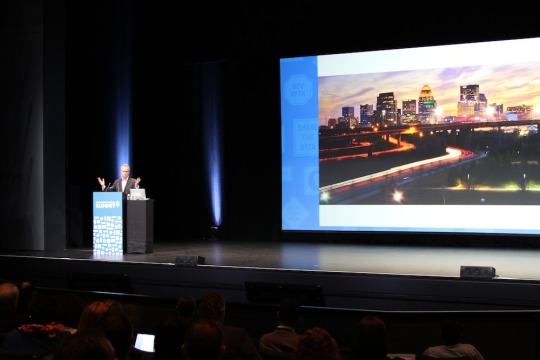Link
Funded through a Knight Foundation grant, also on GitHub.
0 notes
Link
#apps#los angeles#health#crime#transportation#land use#education#interactive#map#housing#neighborhoods#open data#census
0 notes
Link
Open source app built to help users get the best out of their bikeshare experience by designing a route between selected start and end stations.
0 notes
Link
Digital platform for shaping the understanding of elections and issues.
0 notes
Link
Code for America collaboratively published web book.
0 notes
Link
Great list of suggested articles and papers on open data.
0 notes
Link
App built on top of real-time parking ticket data that predicts the likeliness you will be ticketed at parking meters.
0 notes
Link
List of demos for WET, a Web toolkit put together for developing accessible government websites.
0 notes
Link
Website for the Los Angeles chapter of the Code for America brigade.
0 notes
Link
Crash data for Chicago in 2005-2011 where a bicyclist or pedestrian was the first point of impact for a driver's automobile, as collected by responding law enforcement and maintained by the Illinois Department of Transportation.
2 notes
·
View notes
Link
A few of the 886 proposals from the Knight Foundation’s latest open government news challenge.
1 note
·
View note
Photo

On Tuesday, October 15, 2013, Louisville Mayor Greg Fischer announced the signing of an open data policy executive order in conjunction with his compelling talk at the 2013 Code for America Summit. In nonchalant cadence, the mayor announced his support for complete information disclosure by declaring,"It’s data, man." What’s more is this was one of three open data policies signed into law over the last week, the others being California’s West Sacramento and Oakland policies. (For the complete view, see our map of growing policies here.)
Read more on the Sunlight Foundation blog
3 notes
·
View notes
Link
Quote from the executive summary documenting the complete and utter lack of data standards and in some extreme cases no machine readable data for parcel records! Careful, it's a real-jerker.
The research team identified authoritative sources and collected data and relevant documentation from 109 of the originally selected 127 counties—an 86-percent response rate—at varying levels of comprehensiveness. Achieving this response rate required extensive and unexpected additional outreach because of both the timing of the data collection phase (during the peak work season in many county assessor’s offices) and extensive negotiations for government-to-government (G2G) data-sharing agreements between the counties and HUD. Data from the re- maining 18 counties were not collected for reasons that included not having electronically available data (3 counties); having parcel data in the hands of municipalities within the counties rather than those of the counties themselves (2 counties); fees (3 counties); data-sharing requirements (1 county); and other expressions of reluctance, including lacking the internal resources to process the request (9 counties).
1 note
·
View note
Link
The draft has a few visible flaws, but could go a long way toward making government data more accessible.
0 notes
Link
Garcetti vowed to release the troves of raw data used by the city to create the charts and graphics presented Tuesday, enabling tech developers to build smartphone apps and journalists to analyze the city's performance.
"Whatever people want to see, I'm open to putting there," Garcetti said. "I want to be very clear: We are not interested in putting statistics up that just make us look good. In fact, we are confident we will put up things there that don't make the city look good. And that's the point."
It will take time to convince skeptics.
"This is a marketing website, not an open government website," said Clay Johnson, a leading advocate of open-government data. "The difference is: open government websites don't just have the PowerPoint deck slides that make you look good."
#los angeles#open data#open government#la times#article#Cream Of The Crop#eric garcetti#LA#performance metrics
0 notes